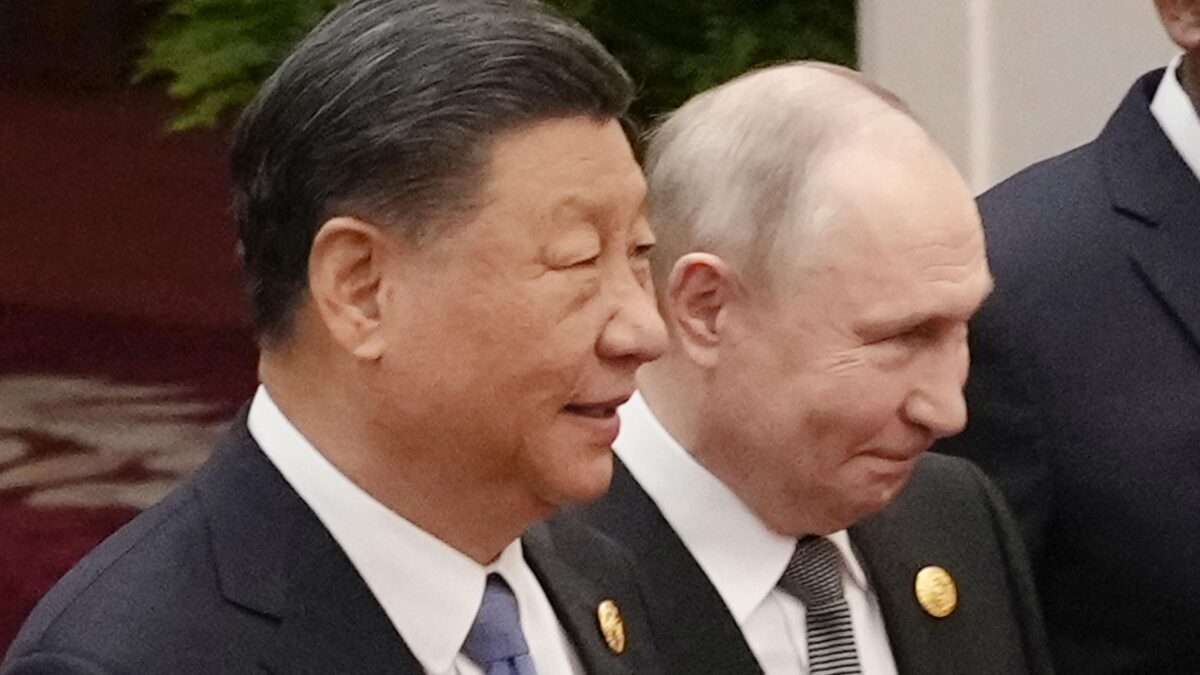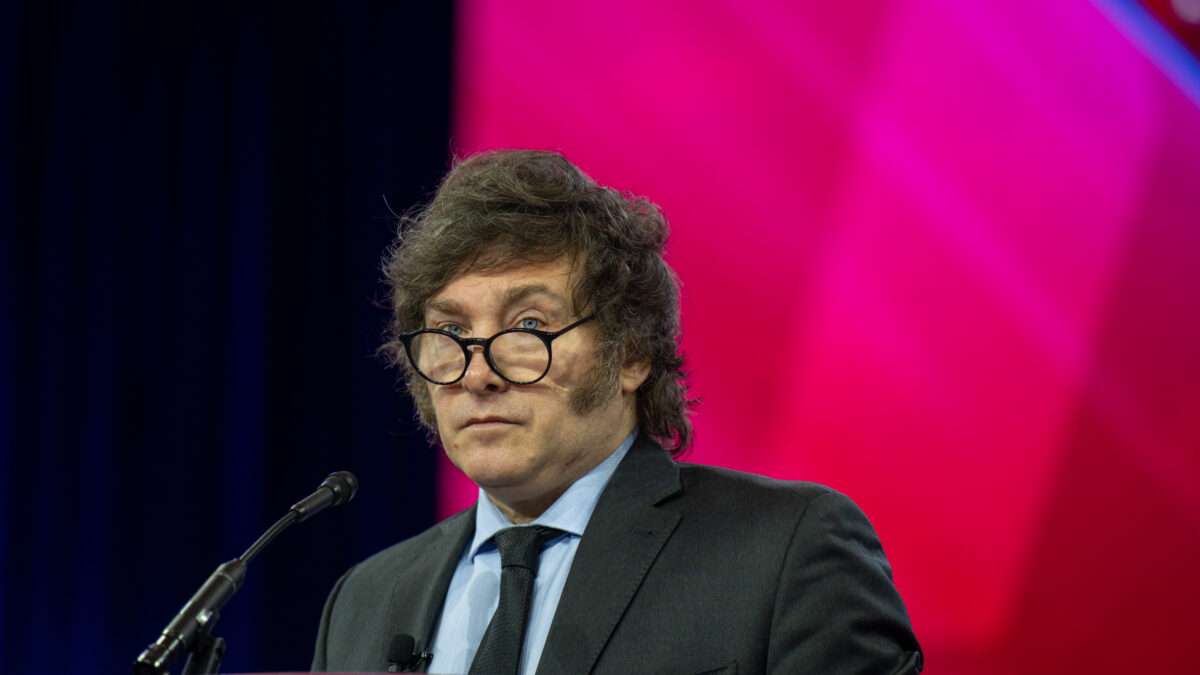In Argentina, the Private Sector May Save Soccer

Unsurprisingly, as the reigning World Cup champions, soccer is deeply embedded in Argentina's national identity. Players on the national team are praised as heroes by everyone, from die-hard fans to casual observers. Their trophies bring joy and a sense of triumph to a country that has seen much division and gloom in recent decades.
Sadly, recent victories could be the last blaze of a dying fire. Soccer (or as we call it, fútbol) in Argentina is in decline, exploited by nefarious interests—but President Javier Milei has a plan.
Until recently, domestic soccer clubs in Argentina had to be operated as nonprofits. An executive branch decree changed that, allowing clubs to become publicly traded companies. The change may spur lifesaving investment into Argentine soccer.
For fans of Argentina's national team and domestic league, this is good news.
Consider how many players are leaving Argentina to play elsewhere. In 2022, 5,000 Argentines were playing abroad, most of whom were promising players under the age of 20. Even among the 26 players on the World Cup-winning roster, only one came from a club in the Argentine league. The Argentine Football Association (AFA) is worried that players who start their careers overseas will choose not to represent their national team in international competitions. Even Lionel Messi, a dual national, was tempted to play for the Spanish national team before choosing to play for Argentina. AFA lives in constant fear of having a future world champion slip through their fingers.
What's causing this exodus of talent? While part of it is Argentina's general economic malaise, some, including Spanish La Liga President Javier Tebas, point a finger at AFA's narrow-minded refusal to allow private investment in the national soccer market. Tebas has said the Argentine team won the 2022 World Cup "despite AFA" because their players "were forged in European clubs."
Milei's reforms mean international companies could buy and sell teams, or invest in Argentina's striving clubs. An injection of foreign capital would be a boon not just to the clubs who'd be able to improve their capabilities and keep talented players at home, but also to the Argentine economy overall, as clubs expand and create more jobs with their newfound capital.
AFA leaders and some major teams denounced the reforms as a "privatization of football"—and if you know how the clubs currently work, it's easy to understand their resistance.
In Argentina, soccer clubs are more than just sports teams. A club is like a church, a provider of all manner of cultural and educational services, a place for communities to share, for families to enroll their children and invest in their future—every young player's dream is to go pro and pay back his parents' sacrifice. While the clubs are already private nonprofits—an organizational model they're very defensive about—in reality, they are run by politicians, celebrities, and businessmen who use them to promote their public image. They keep governance opaque, convoluted, and unaccountable, cementing their power by making deals with barra bravas, powerful hooligan organizations that handle their illegal activities and intimidate opponents into silence—both within the clubs and in electoral politics.
Revenue from the domestic soccer league, such as TV rights money, is dispensed in a pyramid scheme with AFA President Claudio Tapia at the top, doling out favors to keep the clubs economically dependent. About 97 percent of clubs have, at some point, been on the brink of bankruptcy. This causes a vicious cycle: Teams in the league can't afford to keep promising players, who leave for foreign teams with deeper pockets, so the teams perform worse and earn less revenue.
In the late 1990s, Racing Club, one of the historic "Big Five" clubs, went bankrupt and was nearly liquidated. AFA authorized a special rescue plan that allowed insolvent clubs to contract private firms as management in exchange for financial salvage, copying previous experiences of successful entrepreneurial partnerships. Despite the plan's limited scope and the familiar cry of "veiled privatization," it performed so well that several clubs started contracting out their assets and are now faring consistently better than the rest. Meanwhile, fans remain involved by exercising oversight over contractors.
In a microcosm of national politics, mafiosos and oligarchs use populist rhetoric to entrench themselves in power, and then call the private sector to bail them out when reality catches up. In soccer, it's catching up again. Investment is still limited, the player pool is shrinking, clubs are chronically indebted and their services are becoming impoverished and exclusionary. Meanwhile, they're still run by a powerful few but lack transparency or efficiency. A country that's practically synonymous with fútbol should be attracting money and talent from all over the world, not scaring it away. A few conglomerates have expressed interest in Milei's reform, but he'll have to get past attempts at judicial obstruction and silencing of internal dissent by the AFA establishment.
Argentina is the birthplace of many stars in soccer history, but its clubs are suffering from economic stagnation. The private sector can help Argentines reclaim their clubs as social spaces and as points of national pride. Milei's reforms are an opportunity for soccer to become part of the nation's economic recovery. The profit motive, social ethics, and political will of those who love the sport can lead to even more glory.
The post In Argentina, the Private Sector May Save Soccer appeared first on Reason.com.





